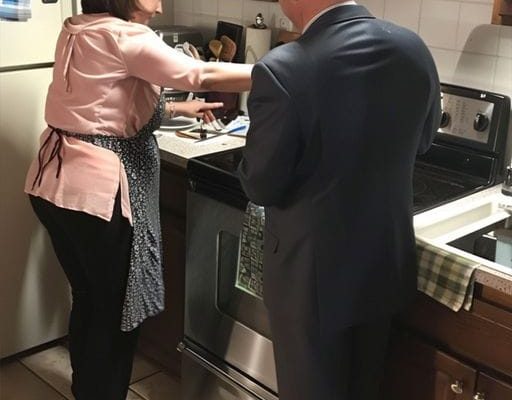For years, my brother Ryan (14M) and I (16F) felt like we were living with a stranger. Our dad was physically present in the house, but emotionally, he might as well have been living on another planet. He left for work every morning at 8 a.m., never offering to give us a ride to school even though it was on his way to the office. By the time he returned at 6 p.m., it was like he couldn’t be bothered to acknowledge us. He’d mutter a quick “Hey,” then bark at Mom, demanding dinner, even though she worked a full-time job too. After dinner, he’d disappear into the living room to play his PlayStation, completely ignoring us.
But what broke the camel’s back was one evening when Dad wanted to grab some old magazines from the living room shelf. He found them dusty and exploded into a fit of rage, accusing Mom of being lazy and neglectful. Watching him tear into her, knowing how hard she worked every single day, was the final straw for Ryan and me. We’d had enough.
That night, as we lay awake in our rooms, we came up with a plan. It was time to show Dad how much he was taking Mom for granted and how disconnected he was from us. If he thought Mom was lazy, we were about to make him see what life would be like if we really didn’t care.
The next evening, Dad came home, tired as usual, barely sparing a glance in our direction. “Dinner ready?” he called, not even checking to see if Mom was home yet. Little did he know, she’d already agreed to our plan.
“Not tonight, Dad,” I replied from the kitchen. “Mom’s working late.”
He scowled, clearly irritated. “Then why isn’t it ready? You two could’ve at least helped out!”
I shrugged, “We’ve been busy, just like you are every day.”
Confused and annoyed, he stormed into the kitchen and found… nothing. No food on the table, no pots simmering on the stove, no neatly laid-out plates. Just an empty, cold kitchen.
“What the—?” His eyes flashed with disbelief. “What am I supposed to eat?”
Ryan came in, looking entirely unconcerned. “Why don’t you order takeout? We usually do that when you’re too busy to cook for us.”
Dad blinked, taken aback. “I don’t—” He didn’t know what to say. It was the first time we’d openly challenged him.
He ordered pizza, grumbling under his breath, but the surprises didn’t stop there. As soon as it arrived, instead of eating together at the table, Ryan and I headed up to our rooms. We left Dad to eat alone, just like how he always abandoned us after dinner for his video games.
For the next few days, we continued our little rebellion. We didn’t clean the house, didn’t pick up after ourselves, and left the laundry piling up. Mom joined in too, putting in just enough effort to keep things from falling apart, but she stopped catering to his every whim. The house quickly descended into chaos.
Dad’s frustration grew with every passing day. He tried to ignore it at first, thinking it was a fluke, but by the end of the week, he finally snapped.
“Why isn’t anyone doing anything around here?” he bellowed one evening, glaring at the mess in the living room.
I stepped forward, calmly folding my arms. “Because you’ve never done anything either, Dad.”
Ryan stood beside me, nodding. “Mom’s been doing everything for years, and you never once appreciated it.”
Dad’s face softened slightly, his anger turning to confusion. “What are you talking about?”
“Mom works just as hard as you do,” I said, my voice firm but steady. “But you come home and treat her like a servant, while you do nothing but play video games. You don’t spend time with us, you don’t help out, and you act like we don’t exist unless you need something. We’re tired of it.”
Ryan chimed in, “We want a dad, not just someone who pays the bills.”
Dad was silent for a long moment, his eyes darting between the two of us. Then, without a word, he sank down onto the couch, staring at the mess around him. For the first time in years, he seemed to really see it—to really see us.
That weekend, something changed. Instead of disappearing into his PlayStation cave, Dad suggested we all go out for breakfast. It was awkward at first—none of us really knew how to talk to him. But as the meal went on, he started asking us about school, about our friends, about our lives. It wasn’t perfect, but it was a start.
And that night, when we came home, Dad did something we’d never seen before. He grabbed a rag, some cleaning spray, and started dusting the living room shelves.
Mom stood in the doorway, watching him with a mixture of surprise and gratitude. Ryan and I exchanged a glance—we’d gotten through to him.
It didn’t happen overnight, but things slowly started to improve. Dad began helping out more around the house, cooking dinner once in a while, and even—shockingly—playing video games with Ryan instead of alone. We weren’t a perfect family, but we were finally starting to feel like one.
And as for Mom, she finally got the respect and appreciation she deserved. Turns out, teaching Dad a lesson wasn’t just about the mess—it was about making him realize that family is more than just being there physically. It’s about being present in every way that matters.



